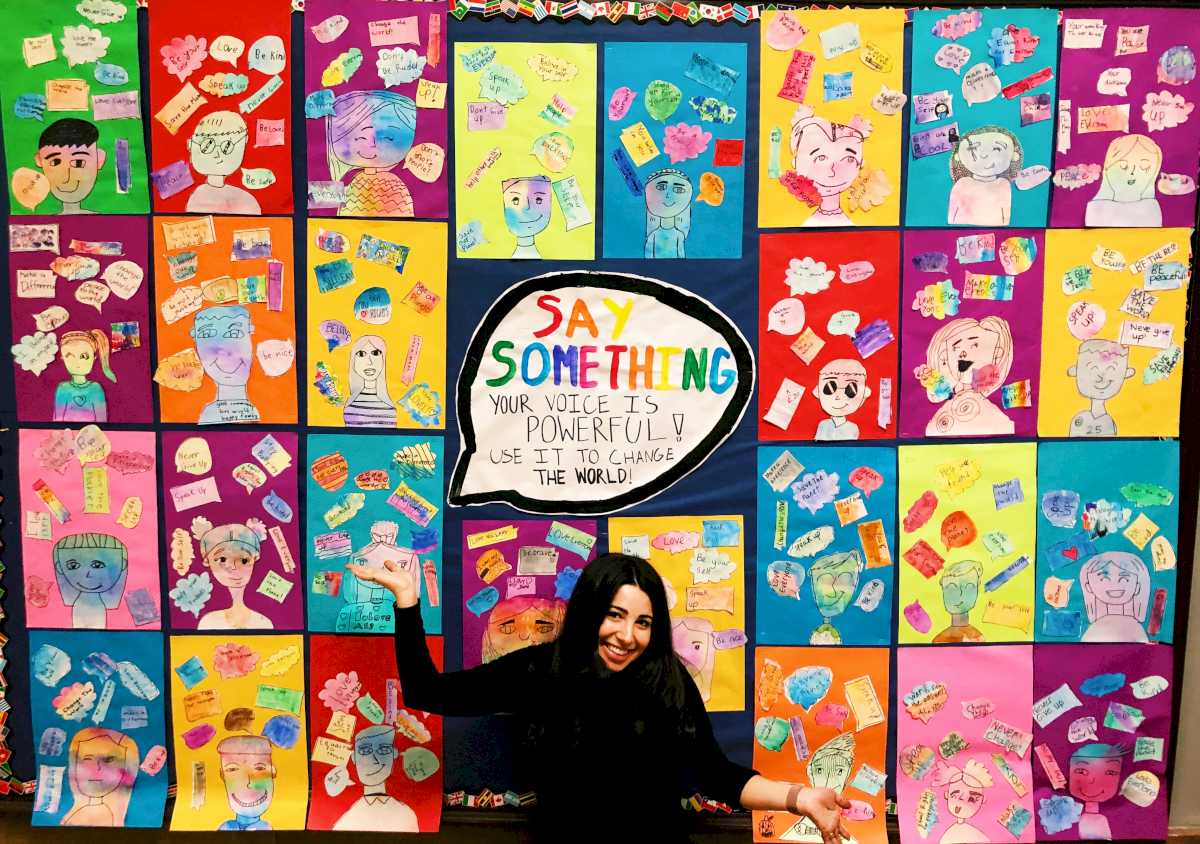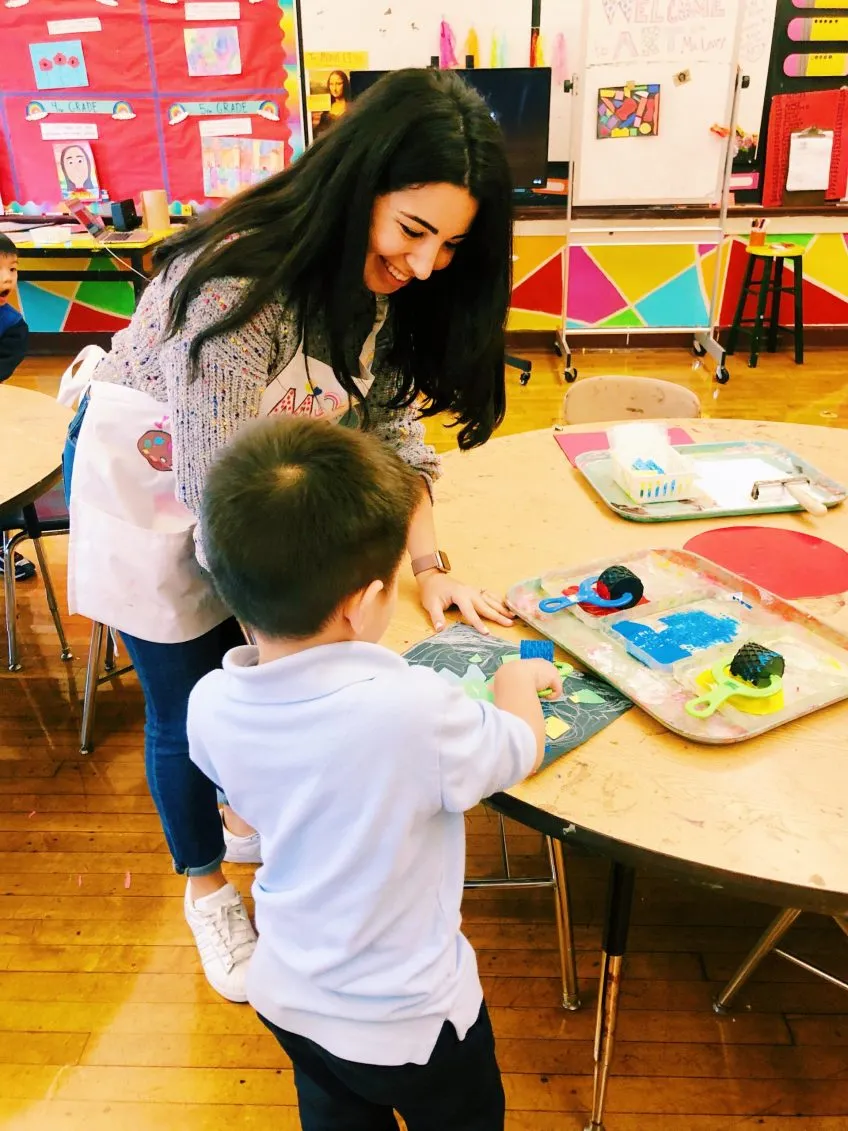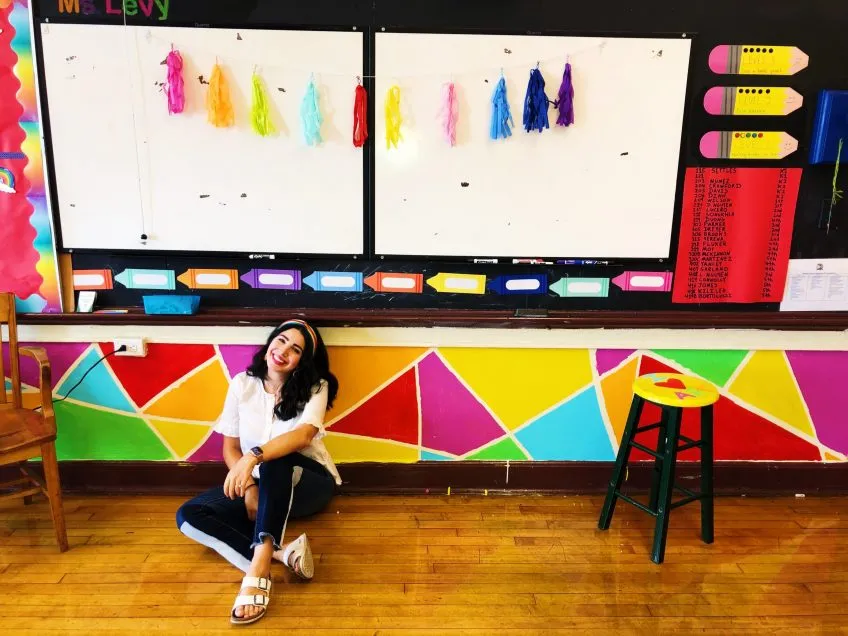First-year art teacher tackles challenges of 2020
Alumni Spotlight: Francesca Levy (BA Art Education 2018).

The first year of teaching is always a new adventure. But in 2020, educators around the country faced great challenges.
In spite of the events that rocked the latter half of the academic year, University of Florida alumna Francesca Levy (BA Art Education 2018) remained an advocate for the importance of art and education.
“My mom was always convincing me that the way to change the world is through education, and I see that now to be very true,” Levy said.
During her time in Gainesville, Levy felt a special connection with the School of Art and Art History because of the school’s small class sizes and her own high involvement in studio courses.
After receiving her bachelor’s in art education, Levy was accepted to the New York University art education master’s degree program. While attending NYU, she worked at the Center for Arts Education, a non-profit organization that offers new art programs in schools previously without.
The 2019-2020 academic year was Levy’s first year as a classroom teacher. She moved to Boston, Massachusetts, to work at a Title I school teaching art to elementary students.
In March, the COVID-19 pandemic forced classes online.
“COVID in a lot of ways stripped away the blanket on our society and revealed a lot of inequities that were already there,” Levy said. “They became more apparent in every part of life, but especially in education.”

Levy said it took about a month to get all the students set up with internet access and computers provided by the district. Once connected, she noticed that some students did not have access to simple art materials in their household, even paper and writing utensils.
She took to finding creative solutions to engage all her students, encouraging art-making with everyday objects and unconventional materials that students could find around their home, including—but not limited to—ketchup.
Levy said she strongly believes that the art room is a very unique place where she doesn’t have the pressures of standardized testing or a specific curriculum. In this way, she is able to tackle and talk about anything with her students, whether that’s social-emotional learning, climate change, or social justice.
Levy also has a strong social media presence, especially on Instagram. She created her account to connect with other art teachers to share and source lesson ideas. Recently, she started using her platform to bring social justice to art educators’ classrooms. During the resurgence of the Black Lives Matter movement, she noticed many art educators were remaining silent.
“I asked myself ‘Why are art teachers not talking about this?’” she said, “I was really frustrated because the art room is the perfect place to discuss issues like this and teach students about social justice.”
With her platform she found other teachers that felt the same way. They began to discuss how they could find a way to engage others in their community and decided to speak about the elements of anti-racist art teaching.
After receiving lots of positive responses, they created the Anti-Racist Art Teachers website, which features an extensive list of resources, including podcasts, TED talks, and the work of various artists from diverse racial backgrounds.
Levy said that the power of art classes is being able to take anything that is happening around you and reflect on it in a creative and expressive way.
“Art education is such an important tool and medium to create critical thinkers and social change,” she said. “The list goes on of all the things art education can do.”

She shared two big takeaways from her first year as tips for other educators:
1. Don’t be afraid. “I think a lot of teachers are really afraid to bring social justice topics into their classrooms, and they think that their students might be overwhelmed. I say, just do it, and you will be surprised. Kids are so observant and smart, and they see everything that’s happening in the world. If we as adults are not going to talk about it, they are on TikTok, they are on the internet, they are listening to the news or their parents talk about these things, so they already know what’s happening. So it’s better to have an adult to facilitate this conversation in a very responsible way rather than let them draw their own conclusions.”
2. Accept the fact that you won’t know everything. “I think something that stops a lot of teachers from talking about social justice topics is that they feel as if they don’t know enough about certain issues and that they are expected to. However, I think it is good to say ‘I don’t know’ when a student asks a question. It shows that it’s okay not to know everything, that we can look up the answers, and that we are human.”
This upcoming year, Levy begins working at a school in Miami, Florida, where she said she will continue her mission to teach her students the power of art and art education.
You can follow Francesca Levy on Instagram @mslevyteachesart.